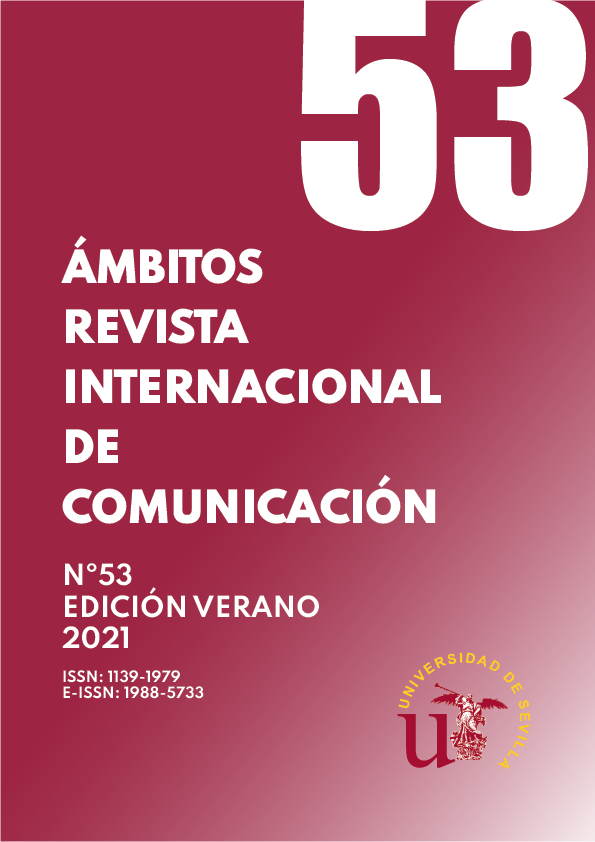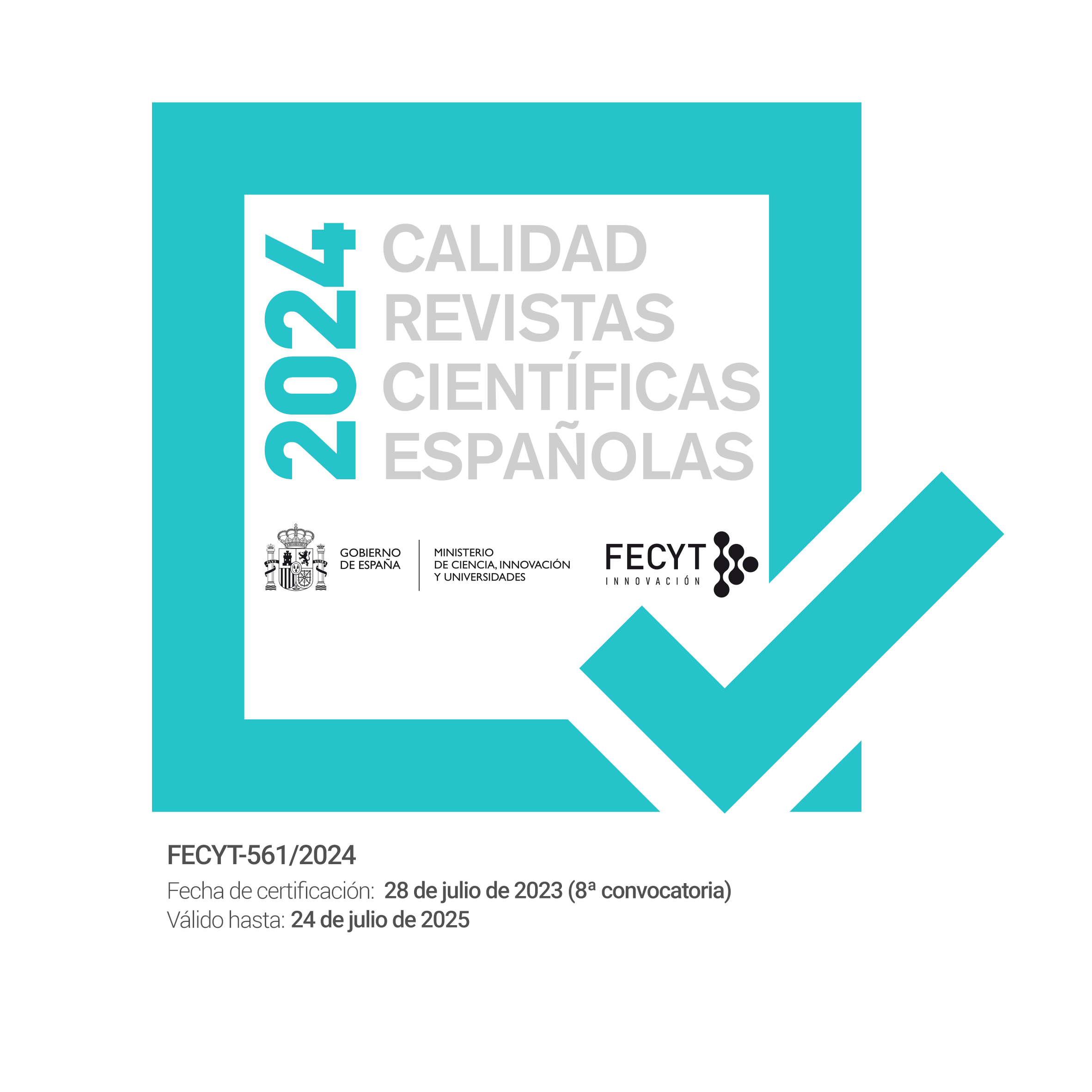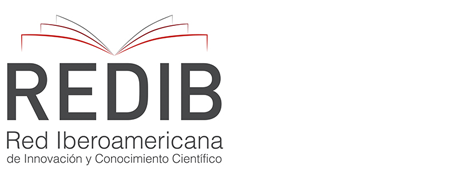Journalistic credibility at stake: connection between propaganda and fake news
DOI:
https://doi.org/10.12795/Ambitos.2021.i53.12Keywords:
Fake news, Propaganda, Journalistic credibility, Algorithms, Artificial intelligenceAbstract
The issue is the emergence of fake news disturbing the democratic culture and discrediting journalism. The objective is to propose a reflection on how certain elements, common to the universe of propaganda, serve to think about the production flows of the fake news. It is considered, here, that the alignment of the fake news to the techniques of propaganda takes place in the processing and storage of information, the choice of the target audience and the consequent direction of the distribution of adulterated information, with the intention of modulating the thoughts of those selected and, in the end, affects journalistic credibility. For this purpose, a connection among propaganda, artificial intelligence algorithms and informational disorder is made. especially when it affects an audience that, without media education, does not have basic verification techniques to get to the truth of the facts. For the discussion around this set of phenomena, a bibliographical research was carried out, in order to tension theoretical perspectives that go deeper into these topics. Nowadays, propaganda especially in the political field (with strong help from digital marketing), has become sophisticated to the point of assuming responsibility for providing the basis for the spread of fake news and disinformation campaigns.
Downloads
Metrics
References
Aguaded, I, Romero-Rodríguez, L.M. (2015). Mediamorfosis y desinformación en la infoesfera: Alfabetización mediática, digital e informacional ante los cambios de hábitos de consumo informativo. Education the Knowledge Society, vol. 16, núm. 1, abril, 44-57. http://dx.doi.org/10.14201/eks20151614457.
Bentes, A. (2019). A gestão algorítmica da atenção: enganchar, conhecer e persuadir. In: Polido, F., Anjos, L., Brandão, L. (Ed/s.). Políticas, internet e sociedade. Iris (Instituto de Referência em Internet e Sociedade), 222-234. http://bit.ly/3rgDeWt.
Borel, B. (2017, 4 de enero). Fact-checking won’t save us from fake news. FiveThirtyEigth. http://53eig.ht/3rhupvu.
Bucci, E. (2000). Sobre ética e imprensa. Companhia das Letras.
Bucci, E. (2017, 6 de julio). A luta livre contra a imprensa. O Estado de S. Paulo. http://bit.ly/3mCQq4D.
Bucci, E. (2018). Pós-política e corrosão da verdade. Revista USP, n. 116, pp. 19-30, ene./mar. 10.11606/issn.2316-9036.v0i116p19-30.
Bucci, E. (2018a, 24 de mayo). Não sabem o que é ‘news’ e querem caçar ‘fake news’. O Estado de S. Paulo. http://bit.ly/3h3Wh1w.
Bucci, E. (2019). Existe democracia sem verdade factual? Estação das Letras e Cores.
Cardoso, T. (2019, 23 de marzo). Humanidades digitais e agenciamento algorítmico. Transobjeto. http://bit.ly/3mGnrN8.
CGI.BR. (2019). Internet, democracia e eleições: Guia prático para gestores públicos e usuários. http://bit.ly/2KdS67v.
Gala, A.C.O.S., Baldi, V. (2019). Quem averigua as notícias, os algoritmos ou jornalistas. A lógica crítica de C. S. Peirce como processo de identificação de uma fake news. Ámbitos. Revista Internacional de Comunicación, n. 46, 241-260. 10.12795/Ambitos.2019.i46.13.
Gillespie, T. (2018). A relevância dos algoritmos. Parágrafo, v. 6, n. 1, 95-121, ene./abr. http://bit.ly/2KqES7l.
Kotler, P., Keller, K. L. (2005). Administração de Marketing. 14ª ed. Pearson Education do Brasil, 2012.
Nickerson, R.S. (1998, Junio). Confirmation bias: a ubiquitous phenomenon in many guises. Sage Journals Pub, v. 2, n. 2, 175-220. 10.1037/1089-2680.2.2.175.
Peirce, C.S. (1877). A fixação da crença. Biblioteca On-line de Ciências da Comunicação. https://bit.ly/38qSg3c.
Prado, M. (2019). Inteligência artificial na cultura informativa e algoritmos de enganação. SANTAELLA, Lucia (Org.). Inteligência artificial & redes sociais (pp. 57-72). EDUC- Editora da PUC-SP.
Prado, M. (2019a) Redes sociais digitais e a esfera pública: “fake news” e a manipulação da opinião coletiva. MARTÍNEZ-ÁVILA, Daniel; SOUZA, Edna Alves de; GONZALEZ, Maria Eunice Quilici (Orgs.). Informação, conhecimento, ação autônoma e big data: continuidade ou revolução? (pp. 165-184). Oficina Universitária, Cultura Acadêmica.
Prado, M. (2020). Blockchain como antídoto às fake news. SANTAELLA, L. (Org.). A expansão social do blockchain. (pp. 77-96). Educ - Editora da PUC-SP.
Restrepo, J.D., Botello, L.M. (2018). Ética Periodística en la Era Digital. International Center for Journalists. https://bit.ly/37HljAo.
Rudnitzki, E. (2019, 22 de octubre). Martin Moore: Se não fizermos nada, vamos caminhar para a democracia das plataformas. Agência Pública. https://bit.ly/3h6GTBv.
Sá, N. (2020, 23 de septiembre). Afastar a aplicação do direito na internet é entusiasmo anacrônico, diz especialista. Folha de S. Paulo. http://bit.ly/3pdxAmm.
Santaella, L. (2018). A pós-verdade é verdadeira ou falsa? Estação das Letras e Cores.
Seaver, N. (2017). Algorithms as culture: some tactics for the ethnography of algorithmic systems. Big Data & Society, v. 4, n. 2, jul./dec. pp. 1-12. 10.1177/2053951717738104.
Setzer, V.W. (2015, 25 de mayo). Dado, informação, conhecimento e competência. Ime.usp.br. https://bit.ly/2LK62Gv.
Traquina, N. (2005). Teorias do jornalismo: Porque as notícias são como são. Insular.
Wardle, C. (2017, 16 de febrero). Fake news. It’s complicated. First Draft. http://bit.ly/3paIFnV.
Wardle, C. (2018). Information disorder: The essential glossary. Harvard Kennedy School. Shorenstein Center on Media, Politics and Public Policy. https://bit.ly/3rjjh1s.
Downloads
Published
How to Cite
Issue
Section
License
Copyright (c) 2021 Magaly Parreira do Prado

This work is licensed under a Creative Commons Attribution-NonCommercial-ShareAlike 4.0 International License.
Ámbitos. Revista Internacional de Comunicación is an open access journal, which means that all content is freely available at no charge to the user or their institution. Users may read, download, copy, distribute, distribute, print, search or link to the full text of articles, or use them for any other lawful purpose, without seeking prior permission from the publisher or author. This definition of open access is in accordance with the Budapest Open Access Initiative (BOAI).

Unless otherwise noted, all content in the electronic edition is distributed under a "Creative Commons Attribution-NonCommercial-ShareAlike 4.0 International License". You can consult the informative version and legal text of the licence here. This should be expressly stated in this way where necessary.
In case of acceptance of the manuscript, the authors cede the rights of the work for its publication to Ámbitos. Revista Internacional de Comunicación under the Attribution-NonCommercial-ShareAlike 4.0 International license contract (CC BY-NC-SA 4.0). The authors retain copyright and third parties are authorised to copy, distribute and make use of the work, provided they comply with the terms and conditions set out in the licence
- Cite the authorship and the original source of publication (journal, publisher and URL of the work).
- Do not use them for commercial purposes.
- If you remix, transform or create from the material, you must release your contributions under the same license as the original.
More information can be found at https://creativecommons.org/licenses/by-nc-sa/4.0/deed.es
- Abstract 1309
- pdf (Español (España)) 505

















